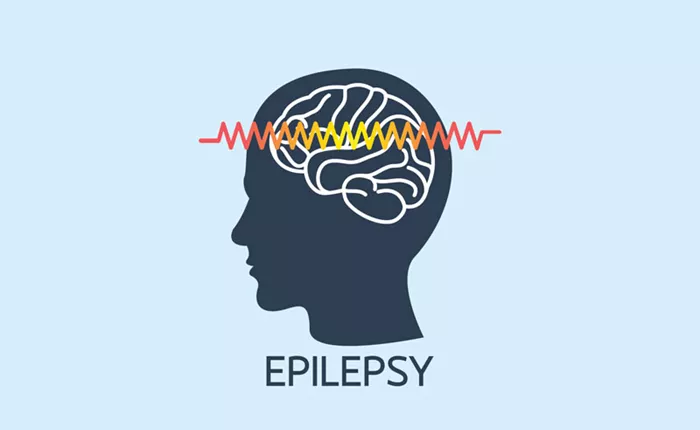Epilepsy is a medical condition that affects the brain and causes seizures. Many people wonder if epilepsy is a mental illness, but the answer is no. Epilepsy is a neurological disorder, which means it is related to the nervous system, not the mind.
Seizures happen when there is sudden, abnormal electrical activity in the brain. This can cause a person to lose control of their body for a short time. While epilepsy affects the brain, it does not change a person’s thoughts, feelings, or personality in the way mental illnesses do.
Features of Epilepsy
Epilepsy is a neurological disorder caused by abnormal electrical activity in the brain, leading to seizures. Seizures can affect part or all of the brain and show different symptoms depending on the type:
Focal (partial) seizures: These start in one brain area and may or may not affect consciousness. Symptoms include sudden changes in emotions, unusual smells or tastes, dizziness, tingling, or involuntary twitching of limbs. Sometimes, people stare blankly or perform repetitive movements without awareness.
Generalized seizures: These involve the whole brain and include types such as tonic-clonic seizures, which cause sudden loss of consciousness, body stiffness, shaking, and sometimes loss of bladder control or biting the tongue. Other forms include absence seizures (brief staring spells), myoclonic jerks (sudden muscle twitches), and atonic seizures (sudden loss of muscle tone causing falls).
Treatment Options
Epilepsy treatment aims to reduce or stop seizures and improve quality of life:
Medication: Anti-epileptic drugs (AEDs) are the most common treatment and can control seizures in about 70-80% of patients. Common drugs include valproate, carbamazepine, lamotrigine, and levetiracetam. Dosages are adjusted based on patient response and side effects.
Surgery: For patients whose seizures do not respond to medication, surgery may be an option. Techniques include removing or disconnecting the seizure focus in the brain, with advances like laser ablation improving precision and safety.
Neurostimulation: Devices such as vagus nerve stimulators (VNS) or responsive neurostimulation (RNS) can help reduce seizures by sending electrical signals to the brain.
Dietary therapy: The ketogenic diet, a high-fat, low-carbohydrate diet, has shown benefits, especially in children with difficult-to-control epilepsy.
Prevention Tips
While epilepsy itself cannot always be prevented, seizure triggers can be managed to reduce attacks:
Maintain a regular sleep schedule and avoid fatigue and stress.
Eat a balanced diet rich in vitamins, minerals, and proteins to support brain health. Avoid stimulants like caffeine, spicy foods, alcohol, and smoking, which may provoke seizures.
Avoid excessive screen time and sudden sensory overload.
Follow medical advice closely, including taking medications as prescribed and attending regular check-ups.
In summary, epilepsy is a brain disorder with diverse symptoms and treatment options. With proper care, many patients can control seizures and lead normal lives. Prevention focuses on healthy lifestyle habits and avoiding known seizure triggers.
Mental illnesses, like depression or anxiety, affect a person’s mood, thinking, and behavior. Epilepsy, on the other hand, is caused by physical changes in the brain. It can sometimes lead to emotional challenges because of the stress of having seizures, but it is not the same as a mental illness.
In summary, epilepsy is a brain disorder that causes seizures, but it is not a mental illness. Understanding this helps reduce the stigma and supports people living with epilepsy.
Read more:
- AI Models Aid In Identifying Epilepsy Seizure Zones For Surgery
- Epilepsy Drug Shows Promise For Treating Sleep Apnoea, Study Reveals
- Why Some Women Cut Ties With Their Toxic Narcissist Mothers


